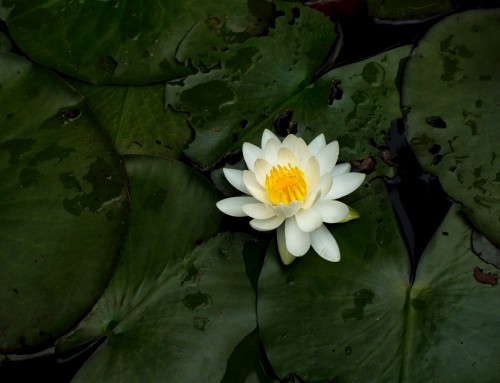With our heads in our computers and smartphones, in our fixated gathering of written and verbal information, maybe we do not have the time to consider a topic like Wisdom.
 In an age dominated by science and technology, by what is placed into specialties and compartments, Wisdom might be too large, too general, too mysterious a concept.
The topic of Wisdom has been an appropriate conversation in religion and philosophy (defined as the Love of Wisdom) for centuries and seems less so for psychology and simple daily living.
And yet, I practice a deep knowing that Wisdom is beneficial to explore, understand and practice in order to meet the various different challenges presented by life.
Writing this article is timely as I have just heard that my proposal to present at the conference of one of my counselling associations was not accepted. My focus was on how Wisdom is important to the growth of the counsellor who, in the practice and personification of wisdom, gains experience to reduce suffering and enhance the well-being for both the clinician and the client. I suggest that Wisdom is both required and results from the interaction and collaboration in the counsellor/client relationship.
But as I write this, I wonder what those who made the decision on presenters might have thought of this:
In an age dominated by science and technology, by what is placed into specialties and compartments, Wisdom might be too large, too general, too mysterious a concept.
The topic of Wisdom has been an appropriate conversation in religion and philosophy (defined as the Love of Wisdom) for centuries and seems less so for psychology and simple daily living.
And yet, I practice a deep knowing that Wisdom is beneficial to explore, understand and practice in order to meet the various different challenges presented by life.
Writing this article is timely as I have just heard that my proposal to present at the conference of one of my counselling associations was not accepted. My focus was on how Wisdom is important to the growth of the counsellor who, in the practice and personification of wisdom, gains experience to reduce suffering and enhance the well-being for both the clinician and the client. I suggest that Wisdom is both required and results from the interaction and collaboration in the counsellor/client relationship.
But as I write this, I wonder what those who made the decision on presenters might have thought of this:
“To grow in wisdom is the art of living in rhythm with the suffering and the joy deeply held in the soul.”
OR…
“…wisdom invites personal and clinical engagement and transformation.”
Yes, of interest AND too mysterious?
Perhaps even confusing and uncertain?
For instance, I read that Wisdom cannot be learned – that Wisdom grows with experience. Well! If life experiences are not about learning – what is??
As a “both-and” person, I have the idea that Wisdom is both an innate (natural, inborn) quality AND Wisdom is learned from life experiences.
The philosopher, Confucius, quoted that Wisdom can be learned by the following methods:
“First, by reflection, which is the noblest; second by imitation, which is the easiest; and third, by experience which is the bitterest.”
My sense is that a modern description of the above is Wisdom can be learned by the following:
Deep knowing, going within which is the most valuable; imitation which is the easiest; and experience which is the most painful.
And the connection between Knowledge and Wisdom?
Knowledge is about facts and ideas that we acquire through study, research, investigation, observation, or experience.
Wisdom is the ability to discern and judge which aspects of that knowledge are true, right, lasting and applicable to our lives.
If Wisdom is knowledge, no doubt, it is a particular kind of knowledge. For instance, if you can recite the telephone numbers in your smartphone or all the capital cities in the world – is this Wisdom?
And if Wisdom is knowledge of the scientific and technical, wouldn’t modern people be wiser than the ancient philosophers?
They were sooo wise, yes! Especially with this description of Wisdom:
To know what we do not know and to know the limits of the little we know.
I like what the language of metaphor conveys. An example: Knowledge understands the traffic light has turned red; Wisdom applies the brakes. Knowledge sees the deep hole in the ground; Wisdom walks around it.
Less confusing and mysterious to know that Knowledge is information — Wisdom is the understanding and application of that knowledge.
How we understand and apply the knowledge seems to be vital. Now I know why I say what I do in my work as a counsellor about “the big picture; putting small details in a larger context for clarity and next steps”.
How comfortable are you with a more distant and removed perspective? How able and willing are you to shift between perspectives?
Wisdom is associated with insight (looking within) and foresight (looking beyond).
I invite a step back that creates a calming energy in order to see the bigger picture…
A lack of or loss of perspective has an effect on Wisdom as Wisdom flows from a proper perspective.
So often I hear those who come to me for help say “I had not looked at it that way; This is a different way to see/view/consider this.”
The most practical dimension of Wisdom is to understand the purpose and clarify the values and meaning of your life and to create the ways of acting on and fulfilling those values and your life’s purpose and meaning.
The philosopher, Socrates stated that nobody does wrong knowingly. People do wrong because of their limited perspective – a lack or loss of perspective of the right or best thing to do.
How to attain a heightened perspective? AH – material for another article …
Consider the qualities of Courage and Curiosity in the evolving and practical application of Wisdom. Practicing a wider, inclusive, deeper view of your life and how you want it to be may exhilarate and liberate you. At the same time, feelings of fear, confusion, and pain will be present as you open yourself up to new ways of being with yourself, others and the world.
I invite you to continue along with me and Wisdom on this interesting and mysterious experience …
If you feel inspired and wish to continue the conversation about WISDOM, then make sure to
sign up to my newsletter by clicking here, where you will read more articles, Wisdom Wednesdays and more.
If you’re ready to take the first steps towards a fulfilling life,
contact me for a 15 minute FREE telephone consultation to ensure that my services are right for you.
 In an age dominated by science and technology, by what is placed into specialties and compartments, Wisdom might be too large, too general, too mysterious a concept.
The topic of Wisdom has been an appropriate conversation in religion and philosophy (defined as the Love of Wisdom) for centuries and seems less so for psychology and simple daily living.
And yet, I practice a deep knowing that Wisdom is beneficial to explore, understand and practice in order to meet the various different challenges presented by life.
Writing this article is timely as I have just heard that my proposal to present at the conference of one of my counselling associations was not accepted. My focus was on how Wisdom is important to the growth of the counsellor who, in the practice and personification of wisdom, gains experience to reduce suffering and enhance the well-being for both the clinician and the client. I suggest that Wisdom is both required and results from the interaction and collaboration in the counsellor/client relationship.
But as I write this, I wonder what those who made the decision on presenters might have thought of this:
In an age dominated by science and technology, by what is placed into specialties and compartments, Wisdom might be too large, too general, too mysterious a concept.
The topic of Wisdom has been an appropriate conversation in religion and philosophy (defined as the Love of Wisdom) for centuries and seems less so for psychology and simple daily living.
And yet, I practice a deep knowing that Wisdom is beneficial to explore, understand and practice in order to meet the various different challenges presented by life.
Writing this article is timely as I have just heard that my proposal to present at the conference of one of my counselling associations was not accepted. My focus was on how Wisdom is important to the growth of the counsellor who, in the practice and personification of wisdom, gains experience to reduce suffering and enhance the well-being for both the clinician and the client. I suggest that Wisdom is both required and results from the interaction and collaboration in the counsellor/client relationship.
But as I write this, I wonder what those who made the decision on presenters might have thought of this:








Leave A Comment